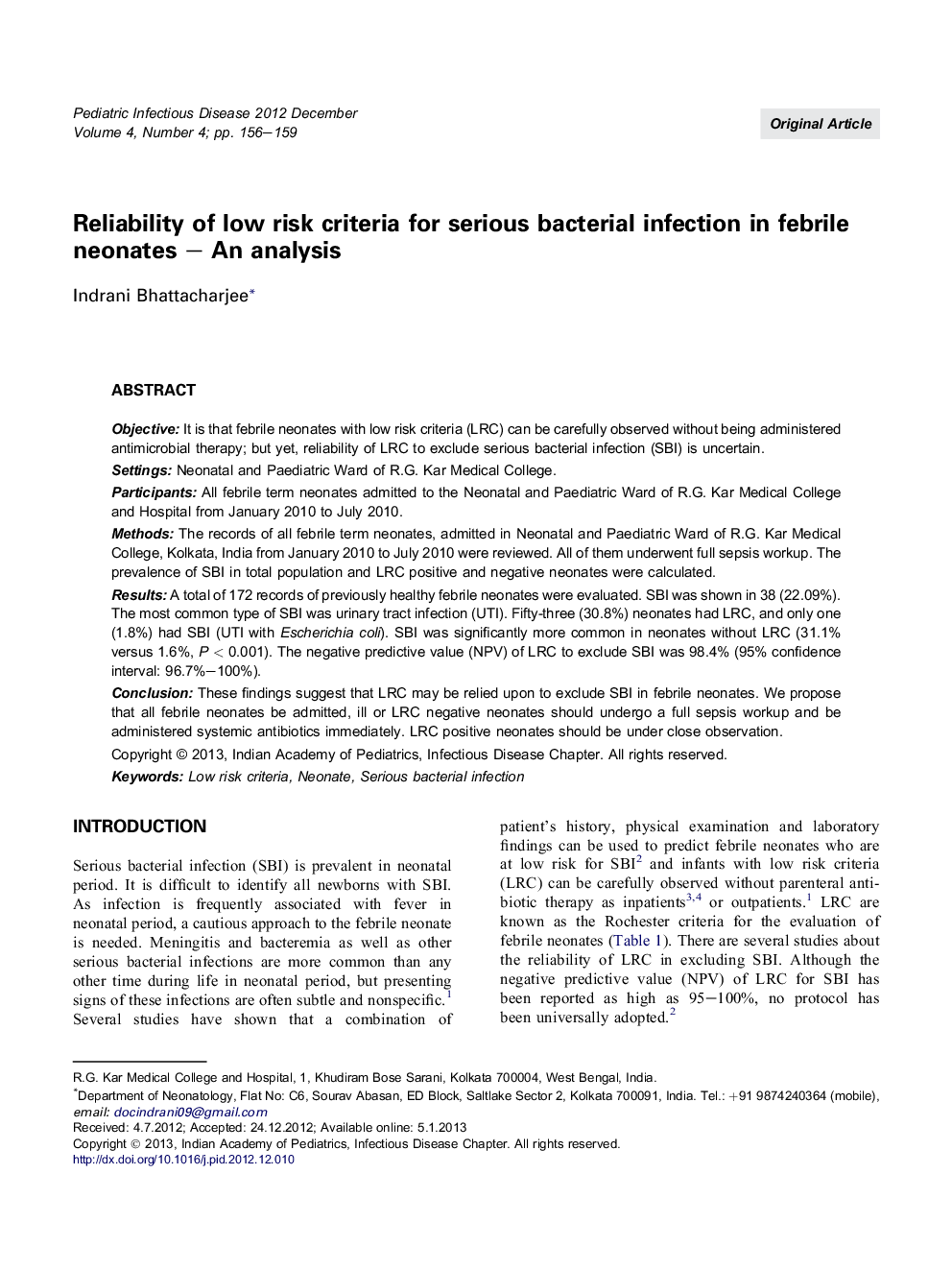| Article ID | Journal | Published Year | Pages | File Type |
|---|---|---|---|---|
| 3382405 | Pediatric Infectious Disease | 2012 | 4 Pages |
ObjectiveIt is that febrile neonates with low risk criteria (LRC) can be carefully observed without being administered antimicrobial therapy; but yet, reliability of LRC to exclude serious bacterial infection (SBI) is uncertain.SettingsNeonatal and Paediatric Ward of R.G. Kar Medical College.ParticipantsAll febrile term neonates admitted to the Neonatal and Paediatric Ward of R.G. Kar Medical College and Hospital from January 2010 to July 2010.MethodsThe records of all febrile term neonates, admitted in Neonatal and Paediatric Ward of R.G. Kar Medical College, Kolkata, India from January 2010 to July 2010 were reviewed. All of them underwent full sepsis workup. The prevalence of SBI in total population and LRC positive and negative neonates were calculated.ResultsA total of 172 records of previously healthy febrile neonates were evaluated. SBI was shown in 38 (22.09%). The most common type of SBI was urinary tract infection (UTI). Fifty-three (30.8%) neonates had LRC, and only one (1.8%) had SBI (UTI with Escherichia coli). SBI was significantly more common in neonates without LRC (31.1% versus 1.6%, P < 0.001). The negative predictive value (NPV) of LRC to exclude SBI was 98.4% (95% confidence interval: 96.7%–100%).ConclusionThese findings suggest that LRC may be relied upon to exclude SBI in febrile neonates. We propose that all febrile neonates be admitted, ill or LRC negative neonates should undergo a full sepsis workup and be administered systemic antibiotics immediately. LRC positive neonates should be under close observation.
